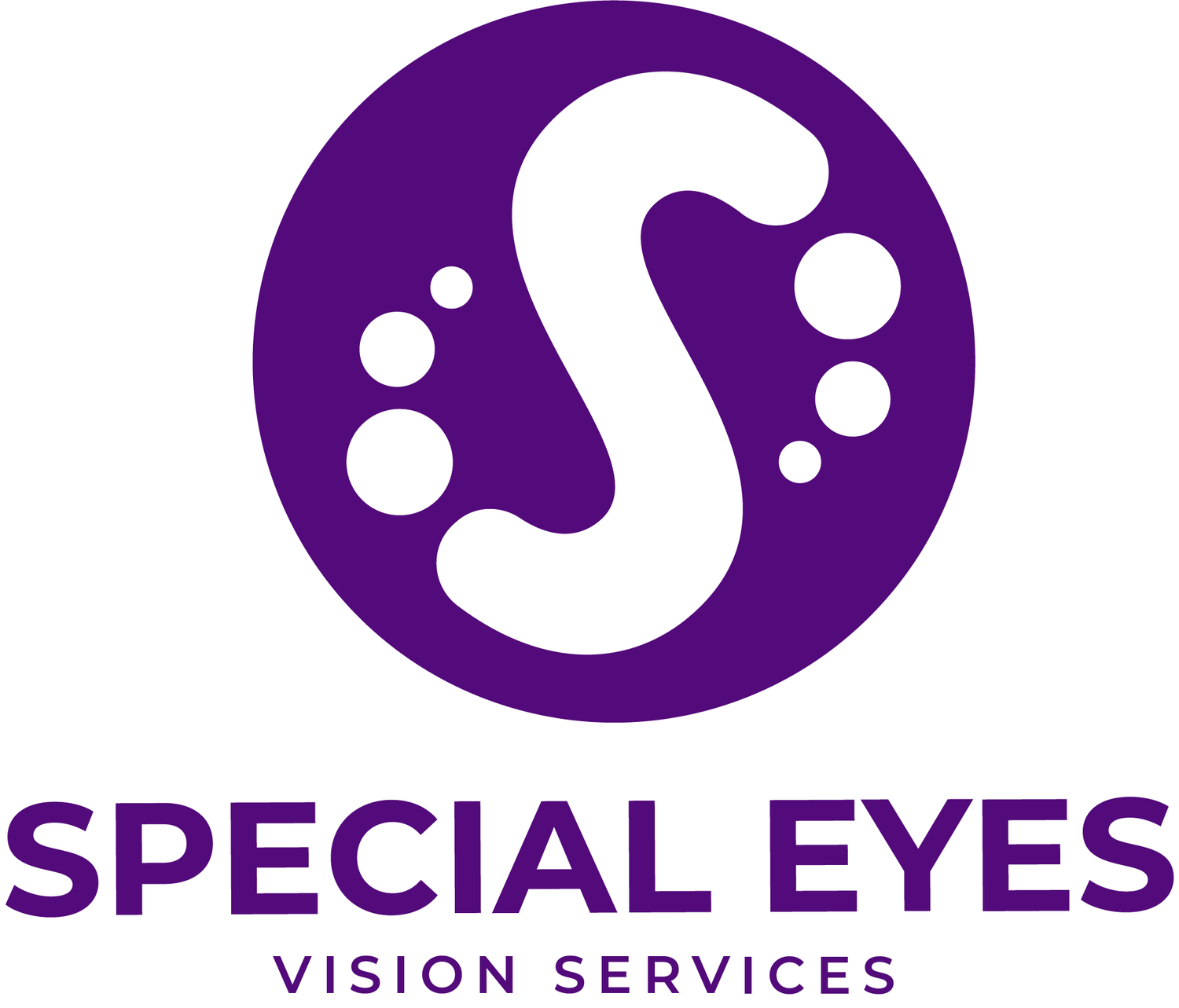Services
Comprehensive vision assessment for people with additional needs
Typically, an eye examination involves reading letters from a letter chart, but what if a person can’t do that? Did you know that there are special testing methods which allow us to determine what a person can see even if they are non-speaking or minimally verbal?
At Special Eyes, we have the skills, equipment, and experience to assess vision for children and adults who are unable to engage with traditional vision testing.
Low vision assessment
Vision impairment is common among people with addition needs and complex disability.
Professional staff at Special Eyes have a wealth of experience assessing and supporting people with vision impairment. We are also able to provide onward referral to a wide range of therapy, medical, and other support services.
A comprehensive low vision assessment can help to demonstrate the need for support when making an NDIS application.
Cerebral Visual Impairment (CVI) Assessment and support
We can offer functional assessment of vision for people with CVI or those suspected of having CVI.
Cerebral/cortical visual impairment (CVI) is the leading cause of blindness and low vision among children in developed countries, yet this condition is not widely recognised or understood. CVI is visual impairment due to brain differences, abnormality, or damage.
For people with CVI, determining what and how they see is crucial to ensuring they can access their world as fully as possible. Often small adjustments to the environment can make a huge difference, and it is particularly critical to ensure that visual material is made accessible for individuals when it is being used in educational or therapy settings.
A CVI assessment at Special Eyes can be used to support a medical diagnosis of CVI, to tailor therapy, and to gain access to support services for vision impairment within education settings.
“As an optometrist with extensive experience working with individuals with disability, I understand the importance of accessing healthcare that is equitable and fit-for-purpose. Your situation and needs are constantly evolving, and I am here to help you navigate. Let's work together to ensure that your vision needs are well taken care of, fully understood, and that you receive the personalised care you deserve.”




